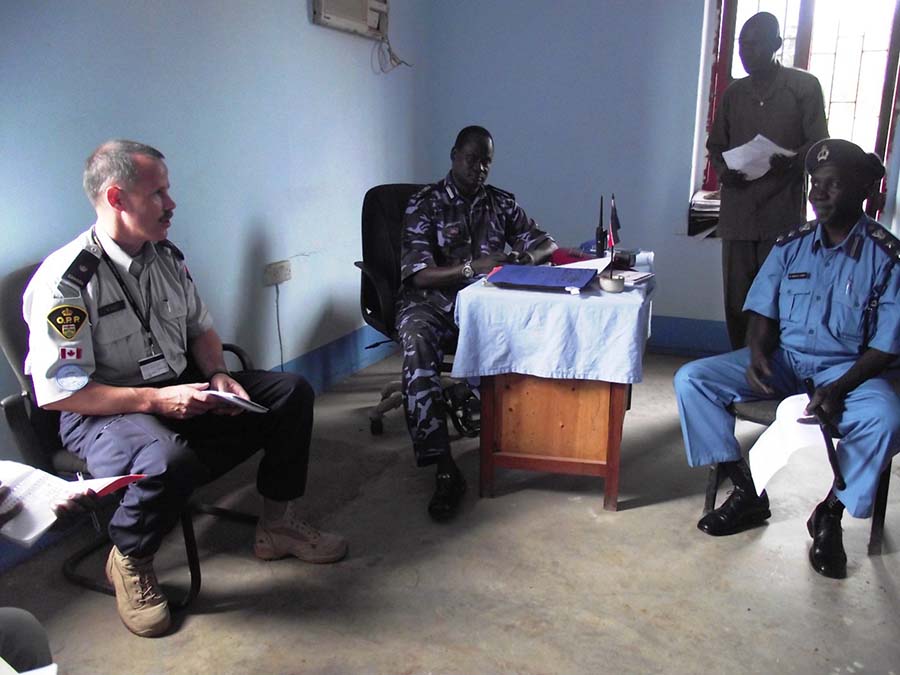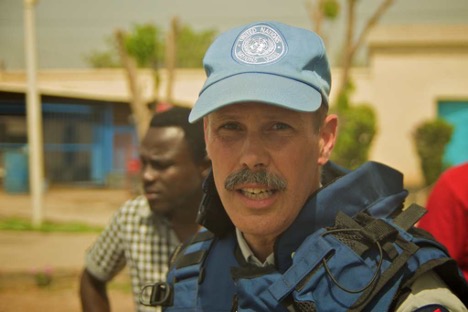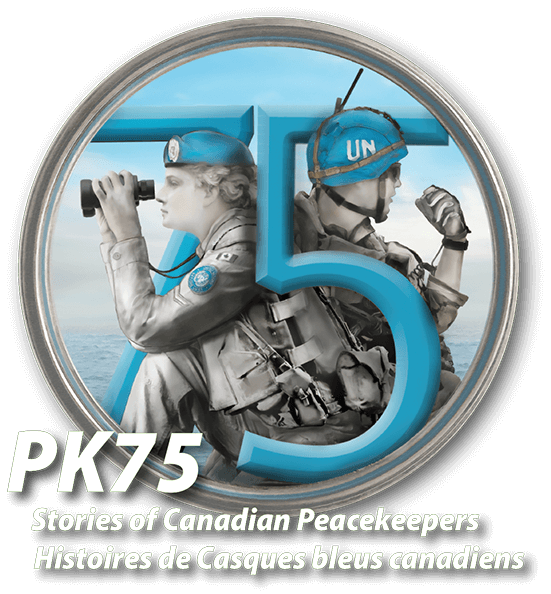

Yukon, Alberta and Northern Ontario, Canada
Robert (Bob) Walli
Current Location: Severn, ON, Canada
I was riding my motorcycle on the picturesque Cabot Trail, in June 2010, when my helmet comms rang, “How soon can you give us an answer on being able to deploy to South Sudan?” Within 48 hours I was back in Smiths Falls, ON, making preparations for deployment with my partner, RCMP Staff Sergeant Walt Boogaard, to work within the United Nations Development Program (UNDP) in South Sudan. Then it was two months of medicals, training, briefings and putting everything in place to be away from home, family, and my Ontario Provincial Police (OPP) career for one year.
In September 2010, the country of South Sudan was not officially independent, however various United Nations and NGOs were engaged supporting the upcoming independence from Sudan after a long civil war that had ended five years before. This included a commitment of up to 25 Canadian police officers to United Nations Mission in Sudan (UNMIS) and UNDP South Sudan. Due to unrelated political issues, there was difficulty transitioning through Khartoum, Sudan, without visas, so the two of us landed first in Nairobi, Kenya where we spent several days arranging travel documents from the transitional government of South Sudan, before flying into Juba, South Sudan. We were the only two Canadian police officers for four months before the arrival of the remainder of our contingent that was assigned to UNMIS.
Being assigned to UNDP was much different than being assigned to UNMIS as we were expected to live off the local economy and were not afforded accommodations on the UNMIS base. We were able to obtain rooms in a secure compound where the other occupants came from various countries with various skill sets working for UNDP. This would prove very beneficial, as much was learned, and informal work got done during our times eating and relaxing together.
My position with UNDP was of Coordinator, Community Security & Small Arms Control (CSSAC) where I worked side by side with civilian specialists including engineers, communications, social services, and development. The goal was to work with various counties in four states on projects that would increase community security and reduce the incidence of violence and use of small arms, as they struggled with the transition from over 20 years of civil war. This included working with our police partners at UNMIS, state/county/local officials, and the South Sudan Police Service (SSPS).
Through the year spent with UNDP, I saw completion of projects started by my predecessor, planned and executed several more, and started others that would continue with the next contingent. These included seeing the establishment of a Livestock Patrol Unit that was needed to bring security to rural areas that were plagued by cattle thefts. This is a serious problem in communities where wealth, status, and ability to provide for family, including traditional wedding dowries, is measured in the number of cows that one owns. We also established small police outposts in areas that had never before had a police presence, a task that included digging wells for clean water, providing radios, and training SSPS officers. One unique project was the acquisition of farm tractors. After consultation with a particular county, providing mechanised farming to their youth seemed a viable alternative to taking up arms, as it would provide young people with a stable income as well as food security for their community.
The mission was not without risk due to the prevalence of malaria and numerous other health issues, not to mention the continued north-south dispute over borders, and violence between rival communities, all exacerbated by the presence of arms left over from the war, primarily AK47’s. It is interesting how you can adjust from carrying a side arm daily in one of the safest countries in the world, to working unarmed in one where it was not uncommon to encounter a 12-year-old with an AK47. At one point, we were caught in Malakal for several days while rival militias fought for the area using artillery and small arms. After such experiences, I came home with an appreciation for the power of a UN blue beret, combined with a Canadian flag on your shoulder.
Biography
Bob Walli grew up across Canada, in the Yukon, Alberta, and Northern Ontario, attending Cambrian College in Sudbury (ON) before going to work in the uranium mines in Elliot Lake (ON). There he worked in security, fire, and medical response.
In 1985, after several years in the mining industry, he joined the Ontario Provincial Police (OPP) and was originally posted to Dowling Detachment, patrolling the highways and townships north of the Region of Sudbury. This was followed by five years in Killarney Detachment on the north shore of Georgian Bay, where patrol included marine in the summer and snowmobile in the winter. Being involved in the community included being a volunteer firefighter and an on-call ambulance driver for this busy summer, sleepy winter location. A transfer in 1992 to Cobourg Detachment on Hwy 401 came with a promotion to Sergeant. It was during this time that the OPP first began participation in international policing, and Bob applied to serve in Bosnia. By 1999 it was back to rural Ontario as the Detachment Commander and Staff Sergeant of Haliburton Highlands Detachment. He had to withdraw from the international policing pool after transferring a young family to a new town.
The year 2005 brought about significant change, as Bob was promoted to Inspector with the OPP and became involved in the Critical Incident Command program. From 2008 until retirement, he was involved in responses to major critical incidents across Ontario, including barricaded persons, protests, and high-risk warrant execution. This was indeed a full-time commitment. There were calls at all hours requiring immediate response that took him away from home for days at a time. When not responding to calls, it was ongoing training with other police services from across Ontario and Canada, all of which was great preparation for re-entry into the international policing program in 2010.
Participating under the guidance of the RCMP in the Canadian Police Arrangement, the OPP has been a police partner since 1995, sending Canadian police officers on a variety of missions across the globe. The OPP has deployed over 100 officers to 17 different theatres ranging from the Criminal Courts in the Hague, to combat zones in Afghanistan. They assist in bringing civilian police perspective, investigative expertise, and training to those in need of assistance.
Bob served with the United Nations Development Programme in South Sudan from Aug 2010 to Aug 2011, working with many international partners and other Canadians from Department of Foreign Affairs and International Trade (DFAIT), and the Canadian International Development Agency (CIDA). For that service he was awarded the Operational Service Medal-Sudan.
One of the most special projects he participated in while in South Sudan was one where off-duty Canadian police officers and civilians from DFAIT and CIDA donated time, resources, and energy to Confident Children out of Conflict (CCC). CCC was originally started with seed money from CIDA but needed more help to complete a home for orphaned girls in Juba. The Canadians got together to do things such as dig latrines, raise funds, and assist with administration. As Bob’s year in South Sudan was ending, CCC had a functional facility to house 24 orphans.
Bob Walli is now retired from the OPP but continues as a volunteer firefighter for the township where he lives with his wife and son. They enjoy time together with their children and grand children. The tradition of service in emergency response continues, as between children and their spouses there are three serving police officers in the family.

Meeting Eastern Equatoria State in 2010 with Colonel Ben of SSPS to discuss police post locations and radio training.

Malakal during period of fighting between rival militias in 2011.


